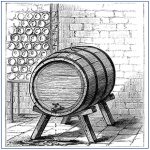Counterfeiters Fashion Law
Typical types of counterfeiters are brick and mortar stores, such as flea markets; street sellers, for example New York city’s Chinatown. This is a stagnating breed of counterfeiting, because people are moving to online shopping.
From the CLE class: Fashion Law Basics: The Lawyer Wears Prada
Patrick McKey
has a practice that concentrates primarily on complex commercial litigation and international business disputes, as well as corporate counseling. For over 10 years, he has represented a range of clients in the fashion industry, including Bruno Magli, Coach, Dana Davis, Giuseppe Zanotti, Harajuku Lovers, Italian Ready to Wear (“IRTW”), Kid Robot, L.A.M.B., Oilily and Vicini. He has represented many of these clients in all aspects of their operations, from intellectual property and licensing issues to commercial litigation, contract negotiations, and import/export issues.Maria Vathis has a broad range of experience defending corporate clients in complex business litigation matters, insurance coverage, and class actions involving alleged violations of federal statutes, including the Telephone Consumer Protection Act. Ms. Vathis has represented financial institutions, investment firms, law firms, brokers, attorneys and other professionals. She handles matters nationwide in federal and state courts.
In this CLE class clip, Patrick and Maria discuss Counterfeiters Fashion Law.
Watch the Full Fashion Law Basics: The Lawyer Wears Prada CLE Class
From 2002 to 2015, online retail sales have increased from $42 billion to $256.1 billion. Counterfeiters online remain anonymous. Websites can change rapidly and products are taken down immediately, if there is a concern that they may be caught. Anti-counterfeiting efforts are difficult, because as soon as one site is closed, another opens up immediately.
Having an effective enforcement program is absolutely critical in maintaining the value of the market. There are ways to formulate enforcement programs that are cost effective, that are continuous, and that truly police the areas that need to be policed, whether that’s an online, or brick and mortar business.
If you are concerned about the value of your product, or your mark, and you do nothing about that counterfeiting, the value will suffer and you may lose the ability to exclusively use that mark.
Check out the complete CLE class video, presented by Maria Vathis and Patrick McKey discussing counterfeiters in the fashion industry.








